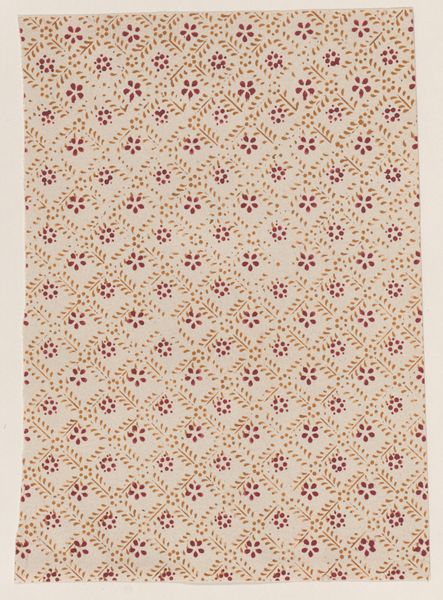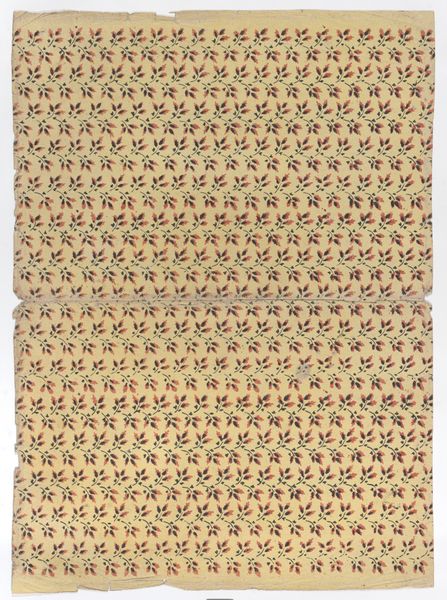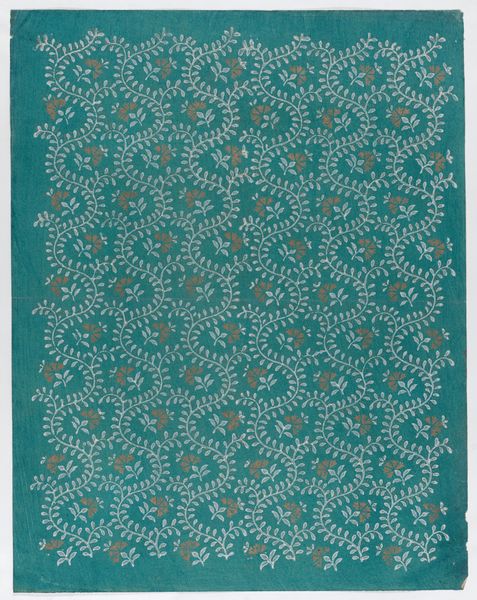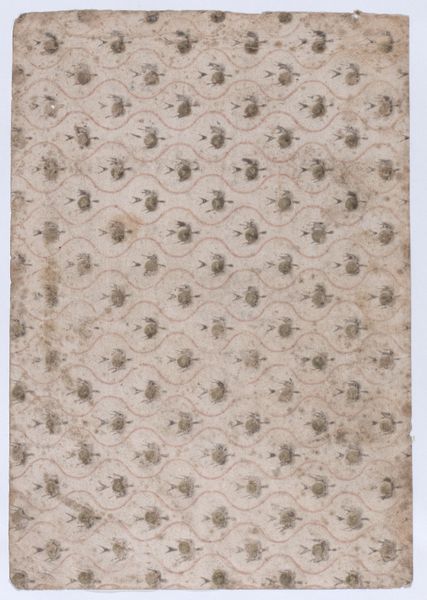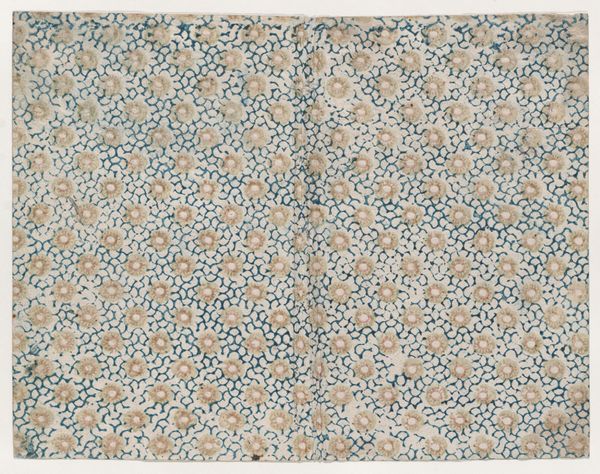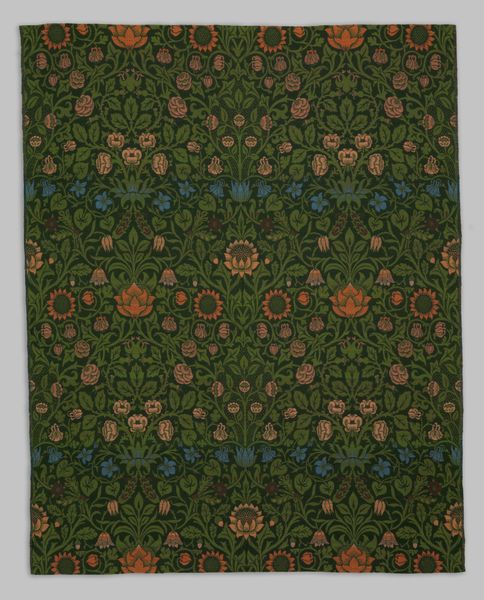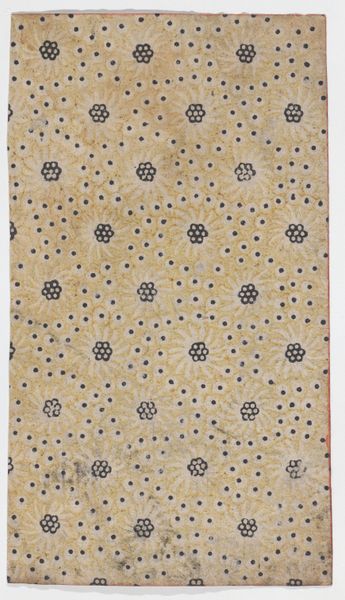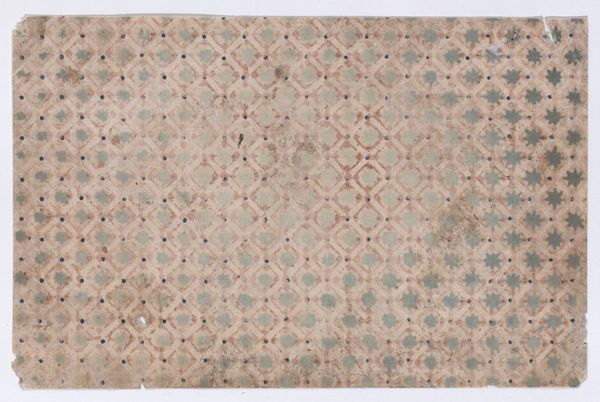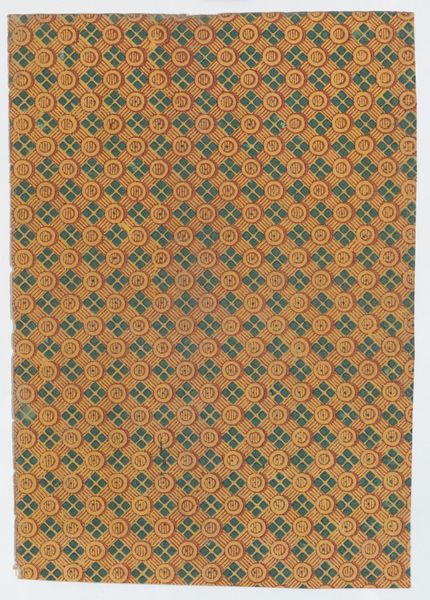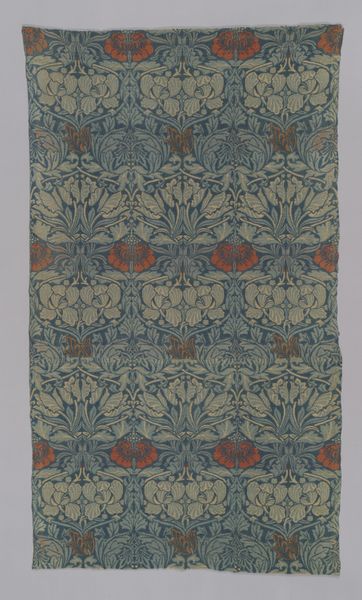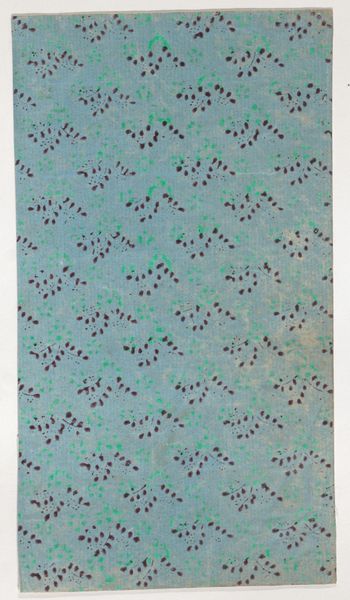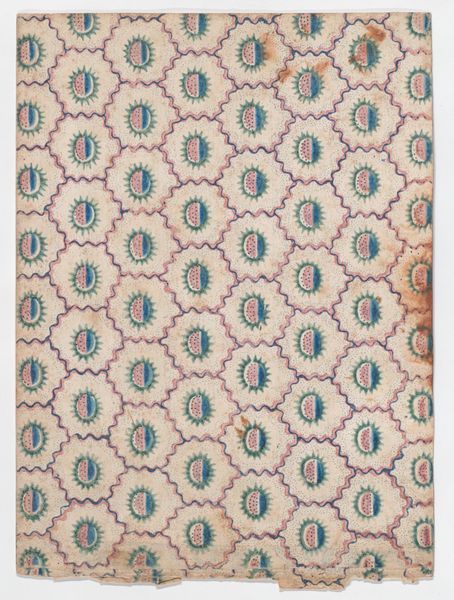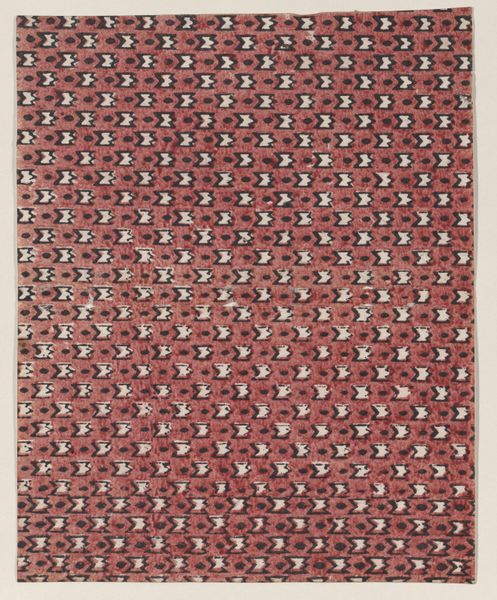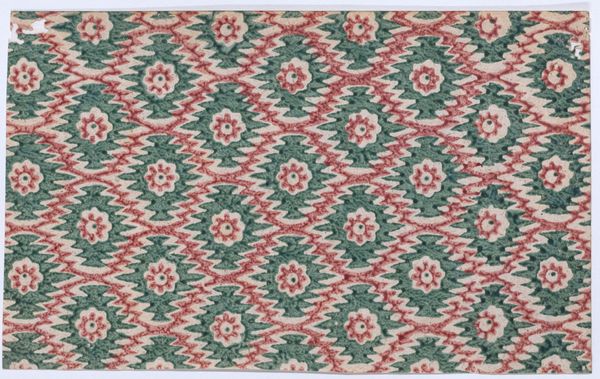
print, textile
#
organic
# print
#
textile
#
pattern design
#
organic pattern
#
decorative-art
Dimensions: Sheet: 5 5/16 × 7 3/8 in. (13.5 × 18.7 cm)
Copyright: Public Domain
Editor: This is a “Sheet with overall floral pattern,” dating from between 1800 and 1900. It's an anonymous print on textile at The Met. It has such a mesmerizing effect, that dense floral pattern! What do you see in this piece beyond just pretty flowers? Curator: Well, I'm drawn to consider the historical context of patterns like these. Textile production during the 19th century was deeply intertwined with industrialization and colonial power structures. Who was producing these textiles, and under what conditions? Were they enslaved laborers in the American South cultivating cotton or factory workers in England operating the mechanized looms? Editor: That’s a sobering thought! It’s easy to just see a decorative object without thinking of that labor. Curator: Precisely. And consider the role of women in the domestic sphere. Floral patterns were often associated with femininity and domesticity, yet the labor of creating these textiles often fell disproportionately on women, especially women of color and working-class women. How might this relate to the "Pattern and Decoration" art movement? Editor: I guess that movement wasn't just about pretty surfaces, but reclaiming and re-evaluating forms of art often dismissed as "feminine" or "domestic," pushing against the art historical canon. Curator: Exactly! The anonymous nature of this work also makes me think about whose stories get told and whose are erased. So many hands contributed to creating pieces like these, but their individual names and experiences are often lost to history. Editor: I never considered textiles in this way before. I’m really going to start thinking more critically about art's larger implications! Curator: That’s the goal. To never see art as simply an object, but as a nexus of power, identity, and historical forces.
Comments
No comments
Be the first to comment and join the conversation on the ultimate creative platform.
